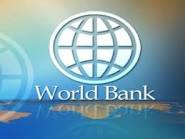THE World Bank has projected that Nigeria’s economic outlook would remain difficult in the short run due to the persistent low price of crude oil in the international market.
The World Bank in its Nigeria Economic Report 3, released recently in Abuja, stated that for the country’s economy to survive within this period, fiscal adjustment will be of critical importance, warning that even if oil prices recover, government oil revenues should continue to decline in the medium term relative to the size of the Nigerian economy.
The World Bank, in the report presented by its Lead Economist for Nigeria, Mr. John Litwack, however, noted that investors are currently willing to bring considerable investment to Nigeria if they receive credible signals from the new government of commitments to policy directions and regulations consistent with strong private sector growth.
Privatesector growth
The World Bank said, “Sharp declines in oil prices since the second half of 2014 can be associated with slower growth, falling budgetary revenues, and pressures on the Naira. The short-term outlook for the Nigerian economy continues to be modest in the light of the difficult adjustment to lower oil prices.
“Nigeria has the opportunity to build a foundation to support growth and rapid development over the medium and longer term.” The World Bank further called on the Federal Government to remove the subsidy on petroleum products, stating that the uncertainty about the fuel subsidy, in addition to its negative impact on Nigeria’s economy, has strongly discouraged investment in domestic oil refining.
It added that the best time to remove fuel subsidy is now when global crude oil price is at its lowest level, noting that the Bank foresaw continuous decline in global crude oil price.
The report stressed that scraping fuel subsidy at this period when the price of crude oil is low would not push retail pump price beyond an average of N100 per litre, or generate the kind of pressure that would negatively impact on the people beyond what they are currently facing.
The World Bank put the fiscal cost of fuel subsidy to the country at $35 billion, about N7 trillion, between 2011 and 2014, stating that the cost of fuel subsidy in 2015, is expected at 18 per cent of all of the country’s oil revenues to the country, which is equivalent of 25 per cent of the federal budget.
Other costs of fuel subsidy to the country, according to the report, include the fact that the report of widespread fraud in the scheme is costly to the reputation of the government.
It further blamed the perennial fuel scarcity currently witnessed across the country on the fuel subsidy scheme, stating that attempts to crack down on fraud in the scheme had always led to reduced supply, while it added that price distortions encourage overconsumption of fuel.
To this end, the World Bank said, “The benefits of the fuel subsidy in Nigeria appear quite limited, while the costs are high. For given fixed domestic fuel prices, the burden of the fuel subsidy, that is, its share of government oil revenues, will likely increase over time regardless of whether oil prices remain low or recover.”
END


Be the first to comment